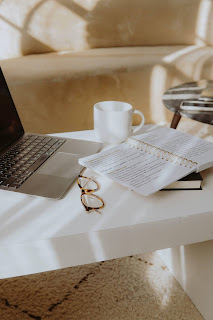I want to talk about being obese, the binge eating, the mental health and the reality of the societal dichotomy of accepting and judging overweight people.
Society tells me, an obese woman, that it’s my fault. I just need to eat less, move more. I need this fad or that pill. All my ailments stem from these extra pounds I’m so willingly carrying. Everything would be better, if I just lost some weight. I could go into the emergency room with an ailment, and they would say weight is the problem.
Break a bone? Lose weight.
Migraines? Lose weight.
Random rashes? Lose weight.
Gun shot? Lose weight.
Thyroid issues?? Lose the fucking weight.
What they don’t tell you is that it’s not that simple. Otherwise fewer people would be overweight.
I can wax poetic about the ways big business and big pharmaceutical have helped sideline the obese population, but that isn’t the point of this. I’m sure I’ll discuss that at a later date. Living in a fat phobic world had led to so many issues with me, and others like me who were obese in childhood. This isn't only for childhood obesity though, the phobia, the fears, the projections; it all affects obese people.
I was among the first to develop in my class. 9 years old, bleeding and growing breasts; it was an enormous factor into my oddity among my peers. Bullied and taunted. Hormones raged while I gained pound after pound of fleshly armor. I coped in the only way I knew how... eating. Eat until it hurts. Then doing it again and again; every meal an opportunity to stretch my stomach to new heights and see how nauseous I could get.
Binge eating was my thing. Depressed over what others said? Eat something.
Anxious over the new tactics my classmates would employ? Eat something.
You get the idea.
This armor was and is weak, but it's still there doing it's best to protect. It's a dangerous thing, however, since obesity itself leads to other horrible diseases. Being fat isn't healthy, but it's a method of coping with other issues. Those issues need to be addressed before, during, and after weight loss.
Everyone wants me to lose weight, get healthy, etc. Fit the accepted standard of appearance. Fit something that I was never meant to fit into. Imagine if we all fit into the narrow ideal of womanhood? How fucking boring. I’ve chosen to concern myself with my physical and mental health. Facing the trauma and mindset that led me here rather than the mercurial image of the hour. This is the only way I can see forward in not perpetuating the cycle of eating emotions, and protecting myself through flesh.
Health isn’t a number, or a shape. It’s about acceptance of where you came from, where you’re currently at, and where you want to go. It’s about reaching out to people who can help, like an understanding doctor, therapist, friends and family. It's about acceptance, and the willingness to change what you need too in order to be health, happy, doing what you love.
It’s about finding the internal reason divorced from the hell that is the health industry.
There’s an idea that if you’re overweight, you’ve chosen to be that way.
It’s easy to change...
You’re lazy.
The ignorance is real. When obese people try to explain how they feel, what’s going on with them...it’s brushed away as excuses. Justification of the “choice” to be fat. For some, being obese is an eating disorder. It needs the compassion, interventions, and help from those around them. We need you to listen to us when we speak about our obesity.
Not judgement.
For fuck’s sake...don’t you know we obese people judge ourselves the harshest?
We battle the image in the mirror, the voices of “professionals”, the statements made by friends and foes alike. We battle our own voices, the loudest of all. Instead of help, we’ve given rote answers. Instead of understanding, we’re met with condemnation.
We need help.We need interventions.We need compassion.We need support.
Some of us can fight for help. Many cannot. Many don’t realize they are worth fighting for. We need the cooperative of a team to un-bury ourselves from the dark hole of added weight. The body positive movement wants us to embrace being healthy at any size, contrary to research stating that the more you weigh the higher the chances/probability of developing additional diseases.
It's no wonder people don't know how to deal with those who are obese with the mixed messages out there. What I wish for, what I hope for, is that you simply listen to and support those who are struggling with their weight, their image, being healthy, having a healthy relationship with food, etc.
Because I'll tell you, I don't have a healthy relationship with food. It's a daily struggle to face my habits and processes that lie to me about food. Almost daily, I find myself in a cycle of thoughts that become obsessive about what I eat, where I eat, how often, why I eat, is this okay for me, will this hurt my body or progress?
The thought vomit is huge, and once the cycle starts it takes awhile to end. So friends... be kind to those who are obese in your life. They carry struggles and battles you won't easily see. Listen to them. Validate their feelings. Support them.












.jpg)
